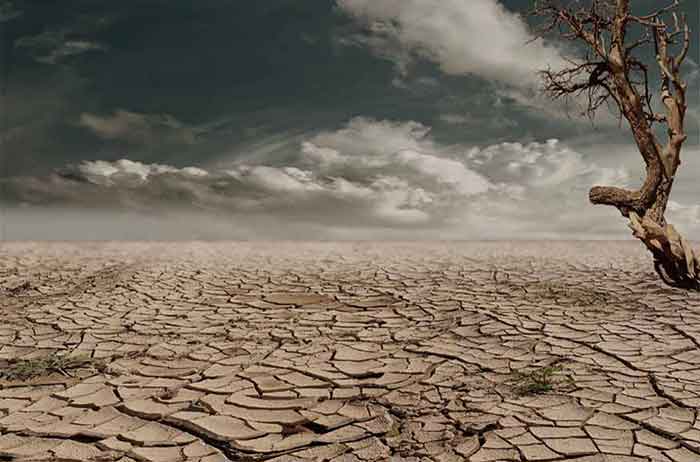
I would like to announce the publication of a new book, which may be downloaded and circulated free of charge from the following link;
The topics discussed in the book are listed below:
Threats are becoming more severe
There is clear evidence that climate-related threats are becoming more severe. One can think of the record-breaking heat waves in Europe and the Americas as well as in China. One can think of drought and falling water tables, which are threatening agriculture in very many countries. And one can also think of the poles, which are warming four times faster than the remainder of the world. There is a danger that coastal cities everywhere will soon be flooded because of rapidly melting polar ice, as is discussed in my book, “Warnings From the Poles”:
https://eacpe.org/content/uploads/2022/01/Warnings-from-the-Poles.pdf
What are we to do? What actions can we take to avoid a climate catastrophe? Below is a list of helpful actions that can and should be taken. Many of those listed here have long been advocated by George Monbiot, who writes a weekly environmental column for The Guardian.
Greatly reduce animal husbandry
Raising animals for food has a number of very harmful impacts on the environment. For example, large areas of rainforests in the Amazon region and elsewhere have been cut down, often illegally, to make place for cattle ranching. In addition to the ecological damage produced by forest loss, cattle also produce large amounts of methane, an extremely dangerous greenhouse gas.
Feeding agricultural produce to animals and then eating the animals is an extremely inefficient way of obtaining food for humans. With global population rapidly rising, and with the available agricultural land stationary or falling, it will be necessary to shorten the food chain by eliminating the consumption of meat. Many very satisfactory meat substitutes are currently available, as is shown in the following article:
https://en.wikipedia.org/wiki/List_of_meat_substitutes#Fungi-derived
Reform agricultural methods
A very serious problem with Green Revolution plant varieties is that they require heavy inputs of pesticides, fertilizers and irrigation. Because of this, the use of high-yield varieties contributes to social inequality, since only rich farmers can afford the necessary inputs. Monocultures, such as the Green Revolution varieties may also prove to be vulnerable to future epidemics of plant diseases, such as the epidemic that caused the Irish Potato Famine in 1845. Even more importantly, pesticides, fertilizers and irrigation all depend on the use of fossil fuels. One must therefore ask whether high agricultural yields can be maintained in the future, when fossil fuels are expected to become prohibitively scarce and expensive, and when their use ought to be banned to avoid catastrophic climate change.
Natural topsoil is rich in organic material, which contains sequestered carbon that would otherwise be present in our atmosphere in the form of greenhouse gases. In addition, natural topsoil contains an extraordinarily rich diversity of bacteria and worms that act to convert agricultural wastes from one year’s harvest into nutrients for the growth of next year’s crop. Pesticides kill these vital organisms, and make the use of artificial fertilizers necessary. Artificial chemically derived fertilizers also kill the vital topsoil organisms, and thus, paradoxically, make the soil less fertile.
Reformed agricultural methods, such as “no-till farming” can help the soil to retain its high carbon content and the community of organisms on which its fertility depends.
Get money out of politics
Citizens everywhere are concerned about the increasing dangers of climate change, and yet governments fail to take any effective climate action. The Keeling curve, which measures the concentration of carbon dioxide in our atmosphere, continues its steady upward trend. In the face of an obvious emergency, why do governments not act? The answer is that the votes of politicians can be bought. The fossil fuel industry is immensely rich, and therefore able to buy politicians. To achieve vitally important governmental action, we must strive to get money out of politics.
https://eacpe.org/content/uploads/2021/11/Money-and-Politics-by-John-Scales-Avery.pdf
The role of the alternative media
In general, the mass media behave as though their role is to prevent the peoples of the world from joining hands and working to save the world from thermonuclear and environmental catastrophes. The television viewer sits slumped in a chair, passive, isolated, dis-empowered and stupefied. The future of the world hangs in the balance, the fate of children and grandchildren hang in the balance, but the television viewer feels no impulse to work actively to change the world or to save it. The Roman emperors gave their people bread and circuses to numb them into political inactivity. The modern mass media seem to be playing a similar role.
Because the mass media have failed us completely, the work of alternative media like TMS Weekly Digest has become enormously important for the future of humanity and the biosphere.
Other books on global problems
Other books and articles on global problems, and on cultural history, can be found on the following links:
http://eacpe.org/about-john-scales-avery/
https://www.meer.com/en/authors/716-john-scales-avery
John Scales Avery is a theoretical chemist at the University of Copenhagen. He is noted for his books and research publications in quantum chemistry, thermodynamics, evolution, and history of science. His 2003 book Information Theory and Evolution set forth the view that the phenomenon of life, including its origin, evolution, as well as human cultural evolution, has its background situated in the fields of thermodynamics, statistical mechanics, and information theory. Since 1990 he has been the Chairman of the Danish National Group of Pugwash Conferences on Science and World Affairs. Between 2004 and 2015 he also served as Chairman of the Danish Peace Academy. He founded the Journal of Bioenergetics and Biomembranes, and was for many years its Managing Editor. He also served as Technical Advisor to the World Health Organization, Regional Office for Europe (19881997).
http://www.fredsakademiet.dk/ordbog/aord/a220.htm. He can be reached at [email protected]. To know more about his works visit this link. https://www.johnavery.info/
















































